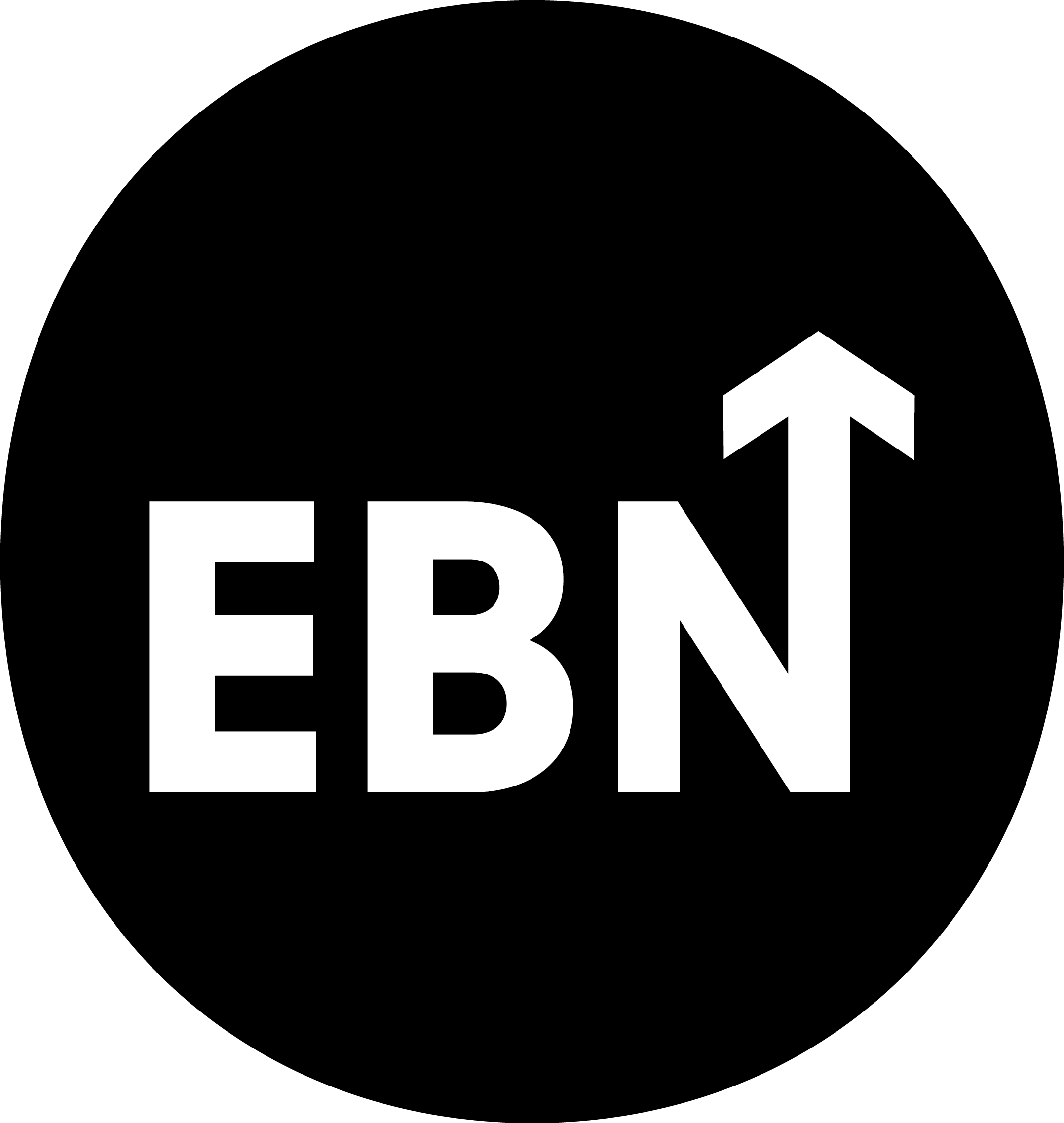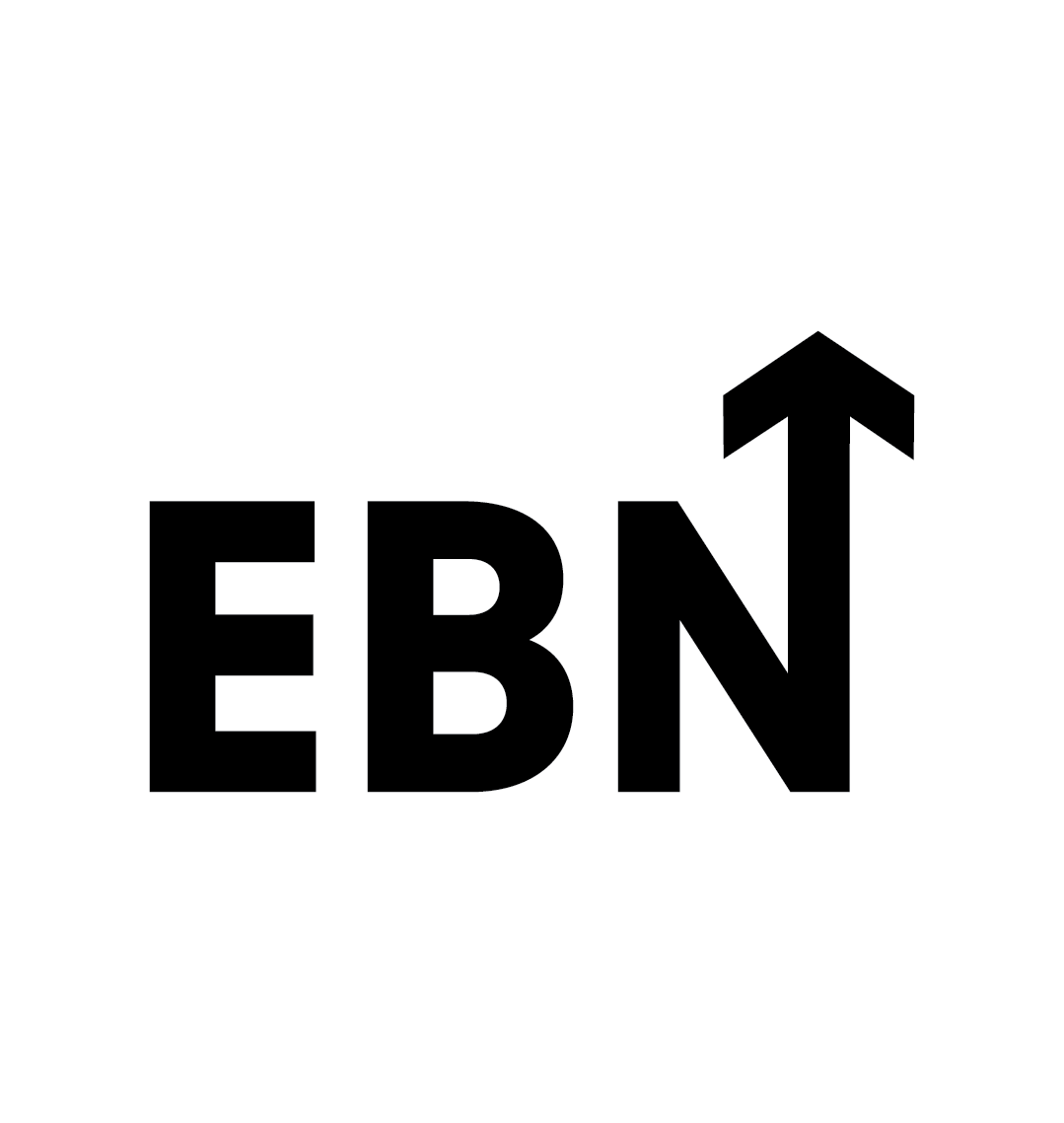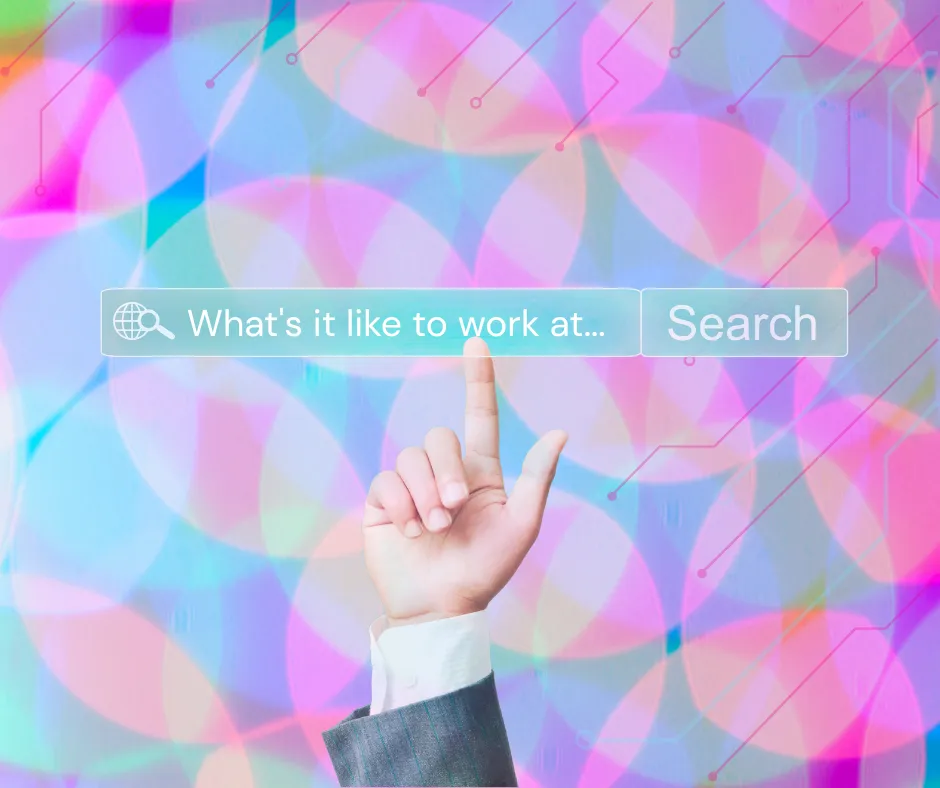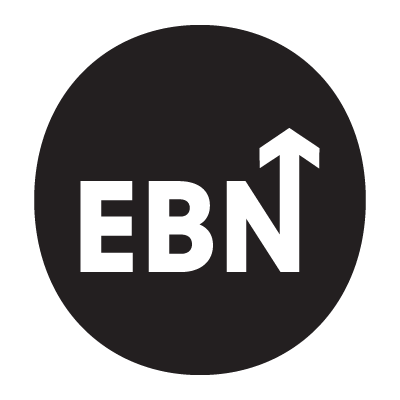Just when you thought SEO was complex, welcome to the era of GEO; Generative Engine Optimization.
In a world where generative AI tools like ChatGPT, Perplexity, and Gemini are fast becoming the go-to for information seekers, the way talent evaluates employers is fundamentally changing. We’re entering a world where candidates don’t just search, they ask. And AI answers.
The big question is:
When top talent asks AI what it’s like to work at your company… what does it say?
If you’re not actively managing this, there’s a good chance the answer is either inaccurate, outdated, or just plain dull. And that, in a trust recession, is a problem.
And, if you have haven’t done so already... what’s stopping you, give it a try!
Momentum isn’t always progress, especially when you always end up back where you started.
Fathom helps you escape the loop. With insight, not intuition.
From Search to Suggestion
The traditional talent journey starts with curiosity. But while search engines used to serve up curated websites, Glassdoor reviews, and LinkedIn pages, generative AI skips straight to the synthesis. It scans the internet, interprets signals, and delivers a confident answer. Not a list of links. An opinion. Welcome to the world of Zero Click!
When candidates ask:
“Is "company" a good place to work?”
“What’s the culture like at “Company”?”
“What’s the salary range and career growth for a sales engineer at “Company”?”
They don’t see your carefully crafted careers page. They get an AI-generated answer - a mash-up of every digital signal you’ve ever (intentionally or not) put out into the world.
What Influences AI’s Answers?
GEO is about managing the data inputs that shape AI-generated perceptions. So where does this information come from?
- Review Platforms: Glassdoor, Indeed, Blind, Reddit, Fishbowl - AI pulls heavily from here, especially for culture, leadership, DEI, and work-life balance narratives. Before you could have just about gotten away with ignore and unfavourable Glassdoor rating, but not anymore.
- News & PR: Employer awards, layoffs, lawsuits, acquisitions - anything and everything in the press gets indexed and regurgitated. Good stories give you credibility. Scandals get amplified.
- Your Careers Site: Structured content (like your EVP, benefits, growth opportunities, and employee stories) helps models understand your positioning... but only if it’s crawlable and coherent.
- Social Media & Employee Advocacy: What employees and leaders say on LinkedIn and other public forums often ends up quoted directly in generative AI responses. Authentic and consistent voices matter.
- Job Postings: Models scrape these for insight into salary, seniority, flexibility, and company priorities. Your job ads say more than you think... to both people and machines.
- Third-Party Lists & Rankings: “Top Employer” awards, best places to work, salary benchmarks - even if talent doesn’t trust these directly, the AI often does.
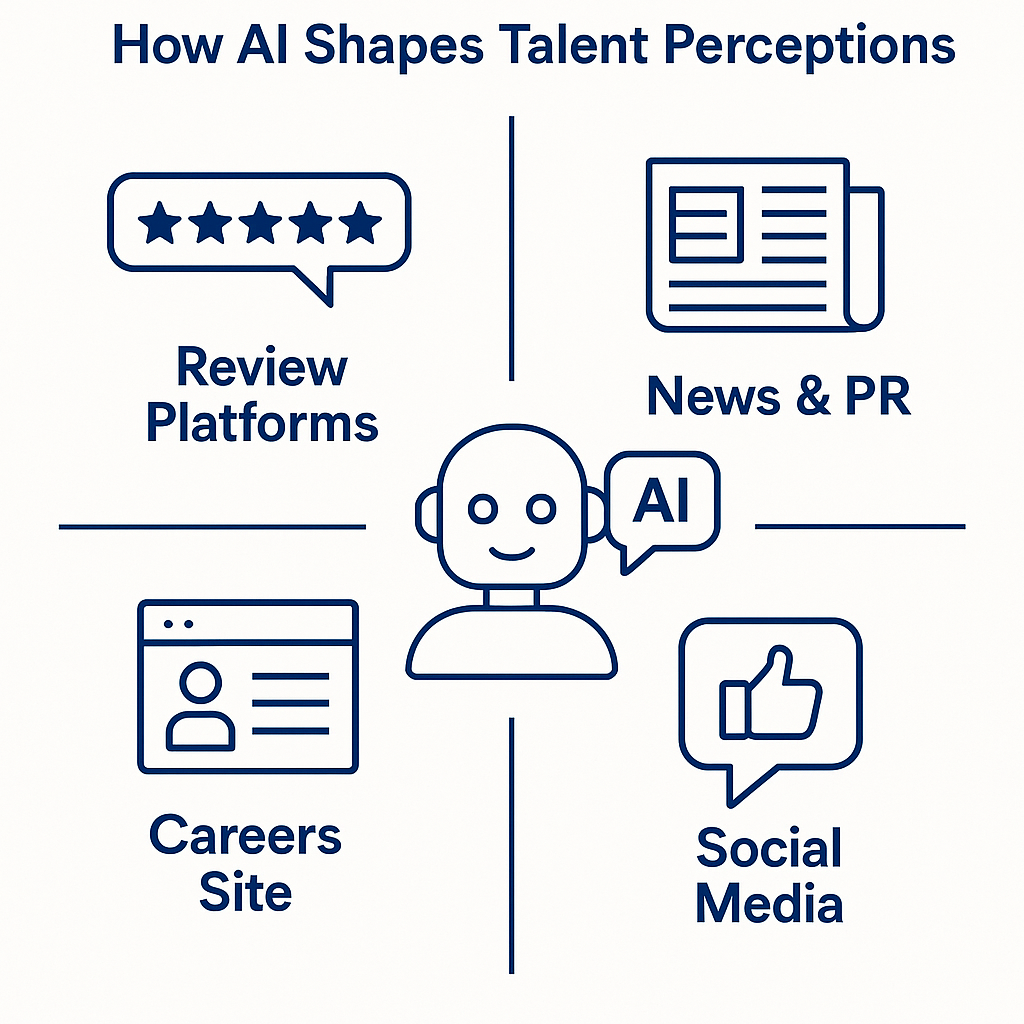
How to Optimize Your Employer Brand for AI
GEO for employer branding isn’t about gaming the system. It’s about clarity, consistency, and credibility across every touchpoint. Here’s how to start:
1. Audit Your Digital Employer Footprint
Ask ChatGPT and Perplexity basic questions about your company. Note what shows up and what doesn’t. Where are the gaps? Where are the red flags?
2. Fix the Fundamentals
Ensure your careers site is crawlable, a version of your EVP is publicly articulated, your job ads are human (and AI) readable, and your brand story is consistent across platforms.
3. Proactively Manage Reviews
Respond to Glassdoor and Indeed reviews with transparency. Encourage balanced feedback from current employees. What AI sees is often a ratio game - quantity and sentiment both matter. If your reviews are unfavourable, prioritise fixing it.
4. Leverage Employee Voices
Encourage your people to share authentic stories on platforms like LinkedIn. AI sees this, indexes it, and pulls from it - especially if it’s public and frequent.
5. Own Your Narrative in the Press
PR still matters. Thought leadership from your CHRO, articles about culture innovation, recognition for sustainability or DEI, these shape your employer reputation in the eyes of AI.
6. Treat Job Ads Like Brand Assets
Instead of generic laundry lists, speak to purpose, flexibility, impact, and growth. Include structured data (like salary bands where possible) and write with clarity and intent.
Helping HR, talent acquisition, employer branding, and company culture professionals find careers worth smiling about.
Why GEO Matters More Than Ever
This is here now, and you needed to act yesterday. Candidates are already skipping Google and your careers site and going straight to AI. And AI isn’t neutral. It forms narratives. It ranks. It filters. And it remembers.
If your company doesn’t show up well in that first answer - if it’s vague, negative, or absent - you’ve already lost the game before it began.
Just like SEO once reshaped marketing, GEO will reshape employer branding. The winners? Those who understand that talent is no longer searching for answers. They’re asking. And what they hear back is only as good as the story you’ve put out into the world.
Final Thought
The old rules said: Control the message.
The new rules say: Influence the model.
Need help getting your GEO optimized, reach out to the team at Fathom and we'd be happy to help
Takeaways:
Candidates Now Ask AI, Not Google
Generative AI tools are the new front door to your employer brand. Candidates don’t browse, they ask, and AI answers.
AI Pulls From Real Digital Signals
Glassdoor reviews, job ads, press coverage and employee posts are the raw materials shaping your reputation in AI responses.
Your Employer Brand Needs GEO
Generative Engine Optimization is how you ensure your brand shows up well when talent seeks advice from AI.
Authenticity and Consistency Win
Structured career site content, real employee voices, and honest reputation management are key to influencing what AI says about you.
Review, Respond, Repeat
Regularly audit AI answers about your company, fix outdated or negative signals, and ensure your employer brand story is up to date across platforms.

